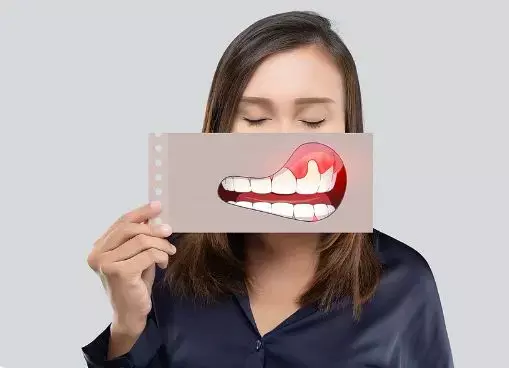- Home
- Medical news & Guidelines
- Anesthesiology
- Cardiology and CTVS
- Critical Care
- Dentistry
- Dermatology
- Diabetes and Endocrinology
- ENT
- Gastroenterology
- Medicine
- Nephrology
- Neurology
- Obstretics-Gynaecology
- Oncology
- Ophthalmology
- Orthopaedics
- Pediatrics-Neonatology
- Psychiatry
- Pulmonology
- Radiology
- Surgery
- Urology
- Laboratory Medicine
- Diet
- Nursing
- Paramedical
- Physiotherapy
- Health news
- Fact Check
- Bone Health Fact Check
- Brain Health Fact Check
- Cancer Related Fact Check
- Child Care Fact Check
- Dental and oral health fact check
- Diabetes and metabolic health fact check
- Diet and Nutrition Fact Check
- Eye and ENT Care Fact Check
- Fitness fact check
- Gut health fact check
- Heart health fact check
- Kidney health fact check
- Medical education fact check
- Men's health fact check
- Respiratory fact check
- Skin and hair care fact check
- Vaccine and Immunization fact check
- Women's health fact check
- AYUSH
- State News
- Andaman and Nicobar Islands
- Andhra Pradesh
- Arunachal Pradesh
- Assam
- Bihar
- Chandigarh
- Chattisgarh
- Dadra and Nagar Haveli
- Daman and Diu
- Delhi
- Goa
- Gujarat
- Haryana
- Himachal Pradesh
- Jammu & Kashmir
- Jharkhand
- Karnataka
- Kerala
- Ladakh
- Lakshadweep
- Madhya Pradesh
- Maharashtra
- Manipur
- Meghalaya
- Mizoram
- Nagaland
- Odisha
- Puducherry
- Punjab
- Rajasthan
- Sikkim
- Tamil Nadu
- Telangana
- Tripura
- Uttar Pradesh
- Uttrakhand
- West Bengal
- Medical Education
- Industry
Oral cancer risk factors on a sharp rise owing to the pandemic: JADA

A recently published research paper in The Journal Of The American Dental Association, has highlighted that the pandemic, in addition to interrupting continuity of care and preventative health care visits, has led to a dramatic increase in certain risk factors for oral carcinogenesis, including increased use of tobacco and alcohol, poor diet, and increased rates of obesity and poor oral hygiene.
"These risk factors, in addition, are implicated in an increased risk of experiencing COVID-19 related mortality. If postpandemic trends in tobacco use, alcohol use, diet, and obesity continue, we postulate increases in global oral cancer rates and a necessity for more aggressive screening practices." the research team has elaborated.
The review has revealed some interesting facts.
- Pandemic -related anxiety, boredom, and irregular routines have driven substantial increases in tobacco use during the COVID-19 pandemic.16 Even more concerning, smoking cessation rates also have declined during the pandemic.
- A 2020 study found a global increase in electronic cigarette consumption as well as nicotine products used to cope with pandemic-related stress and anxiety.
- HPV vaccination rates among adolescents fell 75% owing to a decrease in wellness visits, and throughout the pandemic, child and teen HPV vaccination rates declined approximately 20%.this has direct implications on deteriorating oral hygiene.
- Among US adults during the pandemic, approximately two-thirds of participants reported increased alcohol consumption compared with before the pandemic.similar trends have been noted across Europe and Asia where alcohol sales and consumption have increased drastically.
- Throughout the COVID-19 pandemic, prolonged lockdowns, work from home policies, and gym closures all have contributed to worse dietary habits and increased body weight. Studies examining adolescent food intake during the COVID-19 pandemic recorded increased consumption of fried and sweet food and red meat and increasing caloric intake of foods with lesser nutritional value.
Observing such a bad influence on oral health, the research team concluded that "Medical and dental health care providers must be conscious of the lasting impact the COVID-19 pandemic may have on oral cancer outcomes for decades, owing to altered lifestyle habits that have formed since March 2020.If habits adopted during the COVID-19 pandemic continue, practitioners must take additional considerations to assess risk stratification for patients with oral cancer who are at high risk and continue to ask patients about lifestyle changes at regular intervals. Educating patients about how to conduct their own at-home oral cancer screenings also can be beneficial to mitigating oral cancer spread."
For the full article follow the link- DOI:https://doi.org/10.1016/j.adaj.2022.01.001
Source- The Journal Of The American Dental Association
Dr Satabdi Saha (BDS, MDS) is a practicing pediatric dentist with a keen interest in new medical researches and updates. She has completed her BDS from North Bengal Dental College ,Darjeeling. Then she went on to secure an ALL INDIA NEET PG rank and completed her MDS from the first dental college in the country – Dr R. Ahmed Dental College and Hospital. She is currently attached to The Marwari Relief Society Hospital as a consultant along with private practice of 2 years. She has published scientific papers in national and international journals. Her strong passion of sharing knowledge with the medical fraternity has motivated her to be a part of Medical Dialogues.
Dr Kamal Kant Kohli-MBBS, DTCD- a chest specialist with more than 30 years of practice and a flair for writing clinical articles, Dr Kamal Kant Kohli joined Medical Dialogues as a Chief Editor of Medical News. Besides writing articles, as an editor, he proofreads and verifies all the medical content published on Medical Dialogues including those coming from journals, studies,medical conferences,guidelines etc. Email: drkohli@medicaldialogues.in. Contact no. 011-43720751


